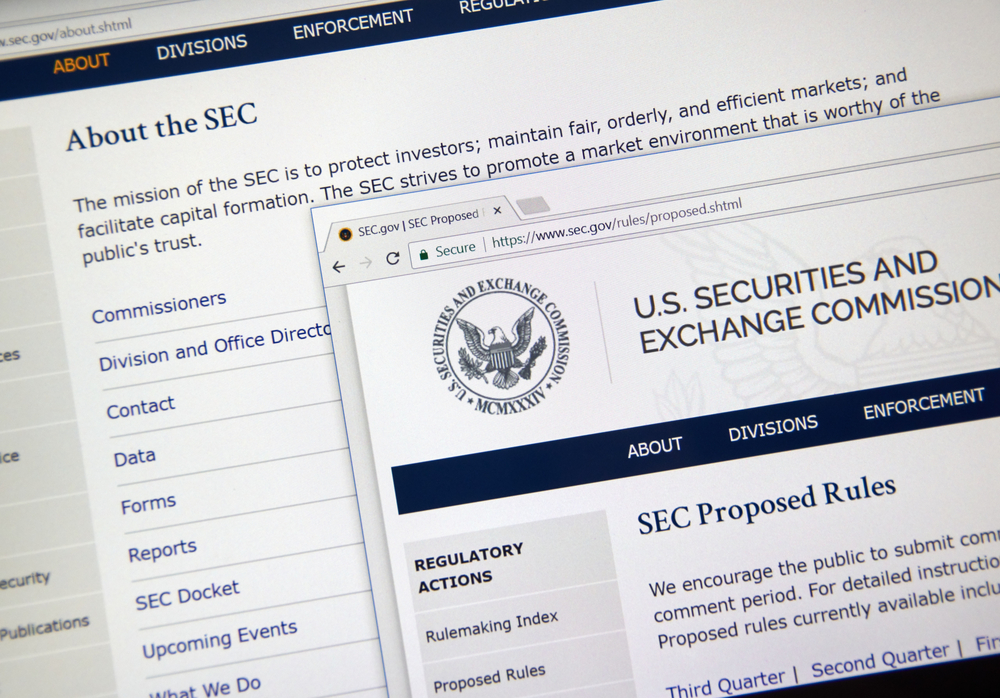Many retail traders who buy OTC securities are panicking right now — but is it really that big of a deal?
Yesterday, E*TRADE sent out an email to users about new rules set to be adopted by the SEC later this year.
That email started off with this message, “New rules will affect your ability to buy and sell “Pink No Information” securities, including at E*TRADE.”
Those rules are set to take effect September 28, 2021, and are amendments adopted by the SEC to its Exchange Act Rule 15c2-11.
Retail trading chatrooms cranked up the doom. Will this demolish OTCs? Is it time to hang up your day-trading hat?
Not even close, says prominent penny stock trader, educator, and philanthropist Timothy Sykes. In fact, he says these new rules are in your favor.
“It’s good to clean up the gutter,” says Sykes. “There’s always gonna be small companies pumping themselves up. There’s always gonna be promoters who are the ones doing it. There’s always gonna be suckers who don’t study enough and they fall for it. All of this creates this whole niche, this whole ugly gutter of a market.”

Timothy Sykes (Image credit: Millionaire Media, LLC)
What Are Pink No Information Securities?
To understand how these new rules will impact traders, we first must cover what these securities are.
Investopedia defines Pink No Information Securities as “the lowest and most speculative tier of the three marketplaces for the trading of over-the-counter (OTC) stocks.”
All three of those tiers are operated by the OTC Markets Group which allows investors and traders to buy stock in companies not listed on national exchanges like the New York Stock Exchange or the NASDAQ.
But OTC Pink is easily the riskiest tier for traders to buy into in the OTC market.
Companies listed on that tier are not held to the same disclosure requirements or financial standards as companies traded on major exchanges.
There are three classifications of OTC Pink companies, defined by Investopedia as follows:
- Current Information companies are those that follow the International Reporting Standard or Alternative Reporting Standard. These companies make filings publicly available through the OTC Disclosure & News Service.
- Limited Information companies include troubled firms in financial distress, bankruptcy, or those with accounting issues. This category also includes companies that are unwilling to meet the OTC Pink Basic Disclosure Guidelines.
- No Information companies are those businesses that do not provide any disclosure at all.

Editorial credit: AevanStock / Shutterstock.com
What Are The New SEC Rules?
Now that we’ve covered what OTC Pink stocks are, let’s discuss how these new regulations from the SEC will impact that market.
On September 16, 2020, the SEC amended its Exchange Act Rule 15c2-11 with the new changes now taking effect this September.
The SEC says this amendment “enhances disclosure and investor protection in the OTC market by ensuring that broker-dealers, in their role as professional gatekeepers to this market, do not publish quotations for an issuer’s security when current issuer information is not publicly available, subject to certain exceptions.”
Ultimately that means everyday retail traders would no longer be able to buy these non-reporting OTC Pink stocks.
“This is a good thing. This is how you clean up markets.” Sykes says. “It will force a lot of non-reporting companies that have gotten away with it in the past, they’re gonna start reporting because they don’t want to get their stock de-listed so it makes them better. It’s like ‘a rising tide lifts all boats.’”
The new regulations would push securities that currently trade on the Pink Market and do not disclose financial information onto the Gray Market instead.

Editorial credit: dennizn / Shutterstock.com
Investopedia defines the Gray Market as “unofficial, over-the-counter (OTC) transactions in a security”.
Securities traded on this market “have been suspended from official trading” or “have not yet begun official trading on an exchange.”
But the SEC is also considering a proposal to establish an “Expert Market” for the unregulated OTC Pink stocks that will be impacted by its new rule.
That “Expert Market” would “grant exemptive relief, subject to certain conditions, to permit broker-dealers to publish or submit proprietary quotations for securities, on a continuous basis, in a market where the distribution of such quotations is restricted to sophisticated or professional investors, without complying with the information review and recordkeeping requirements of Amended Rule 15c2-11(a)(1)(i) and (d)(1)(i)(A), respectively.”
Basically, the establishment of an expert market would allow sophisticated high-risk investors to still buy risky OTC Pink stocks while protecting retail traders from exposure to those extremely high-risk buys.

Image credit: Rawpixel.com/Shutterstock.com
Wouldn’t This Create Less Trading Opportunity?
The biggest concern among traders following E*TRADE’s announcement was that this new rule will create fewer trading opportunities.
But Sykes says that’s nothing to be worried about and there will still be plenty of opportunities in the OTC market.
“There have been so many rules that have come and gone. You just adapt. Don’t worry about what you can’t control,” he states.
The key to help overcome this change, he says, is studying.
“I just take it one trade at a time,” he says. “I don’t worry about bull markets, I don’t worry about bear markets, I don’t worry about crashes. I just am so prepared because I’ve been around for over 20 years. Anybody worrying about rules like this — it’s because you haven’t studied enough.”

Timothy Sykes (Image credit: Millionaire Media, LLC)
Sykes compared the panic about this rule change to the misunderstanding of the pattern day trader rule and how that impacts traders.
“If you’re ever worried about the future, guess what, the answer is hidden in the past,” he says. “The more you study the past, the less concerned about the future you’ll be and you’ll simply react instead of trying to predict.”
Sykes says all the government is trying to do is protect traders from exposing themselves to unnecessary risk.
“Over 90% of traders lose. The government is trying to save the dumb, ignorant, irresponsible newbies from themselves. This is another new rule trying to keep people from investing in the worst of the worst companies. More plays, less plays, I just take it one day at a time. Again, stop worrying and go study.”
Featured Cover image: iQoncept/Shutterstock.com

